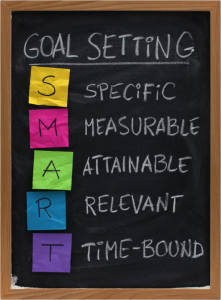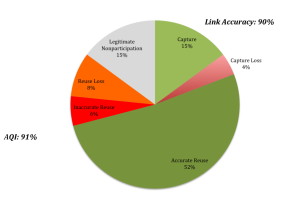Because, you know, that’s what support does. Close cases. Quickly. In a way that satisfies customers. Mission accomplished; let’s grab a beer! Not so fast. This myth begs the […]
The DB Kay Blog
Metrics Myth Three: Managers Should Set Ambitious and Inspiring Goals
Yes, but. This is one of these partial truths where getting the details right really matters. Followers of popular business books will recall the BHAG—the Big Hairy Audacious Goal—proposed by […]
Metrics Myth Two: Support Leaders Should Have Direct Control Over their Metrics and their Goals
“Men at some time are masters of their fates.” Cassius, to Brutus, Julius Caesar, Act I, Scene 2. It’s almost axiomatic that we should sign up for goals only if […]
Support Metrics Myth One: Goals Should be SMART
Metrics always seem to be a favorite topic of conversation. At a recent CSI program team meeting, I was comparing notes with the Consortium’s Melissa Burch about some of the […]
Little Data
You can’t escape hearing about Big Data right now—it has replaced “cloud” as the current hot buzzword in tech. The idea is pretty simple: it’s easy to gather huge volumes […]
Support Culture, Stress, and Wellness
At last week’s Consortium for Service Innovation Member Summit, we heard a keynote from Dr. Kelly Travers, a physician and neuroscientist. Her topic was “wellness,” and I confess I rolled […]
From Article Quality to Resolution Quality
A cornerstone KCS quality measure is the Article Quality Index (AQI.) We calculate the AQI by sampling a handful of articles captured by licensed knowledge developers and checking them against […]
Opportunity: A Survey (with a Report!)
I just got a note from our friends at ServiceXRG. They’re doing a survey that some readers of this blog may be interested in participating in. Pasting from their email: […]
How to Create a Knowledge-Sharing Culture (Part 2 of 2)
…Continued from last week. Get ‘em early. Have you ever noticed that it’s easier to get the new people to follow your processes than to get the veterans to change […]
How to Create a Knowledge-Sharing Culture (Part 1 of 2)
Having looked at signs of a bad and a good culture for knowledge-sharing, respectively, it’s time to get to work. How can we make sure we’re setting our knowledge program […]



